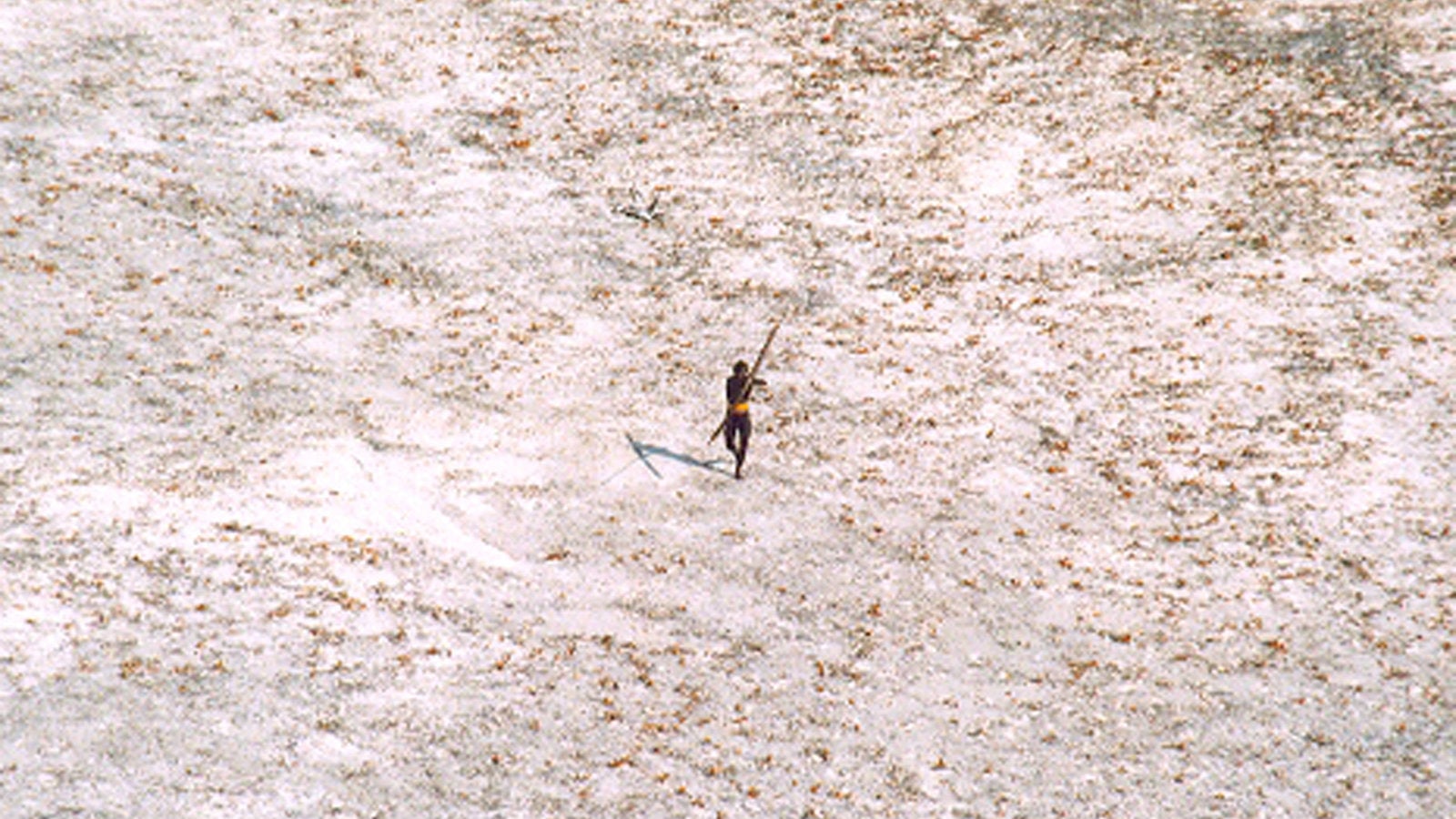One of the world’s most isolated tribes didn’t always kill outsiders
The tribals of North Sentinel island—part of the Andaman archipelago in the Bay of Bengal—don’t seem to like outsiders. One of the world’s most obscure communities, their isolation is accentuated by the Indian government’s 5km restriction preventing anyone from venturing near their home territory.


The tribals of North Sentinel island—part of the Andaman archipelago in the Bay of Bengal—don’t seem to like outsiders. One of the world’s most obscure communities, their isolation is accentuated by the Indian government’s 5km restriction preventing anyone from venturing near their home territory.
But that didn’t stop the American John Chau from trying to “declare Jesus” to them. Now authorities are trying to recover his body after he was reportedly killed by the tribals’ arrows last week.
This wasn’t the first time that the Sentinelese, an ancient people believed to be part of the earliest migratory wave out of Africa to Asia, have violently resisted intrusions. Following the devastating 2004 tsunami, an Indian Coast Guard helicopter surveying the island for survivors encountered tribals trying to bring it down with spears and arrows. In 2006, two Indian fishermen were axed by the tribals after their boat accidentally drifted near the island.
Yet, there have also been instances when the Sentinelese, unexpectedly, welcomed contact with the outside world.
On Jan. 08, 1991, after over two decades of unsuccessful expeditions to the island, with gifts such as coconuts and bananas, a government-led team made the first friendly contact with the tribe. A newspaper report from that time, quoted in The American Scholar, says that unarmed Sentinelese indicated to the visitors that they wanted gifts, and swam into the water to claim the coconuts on offer.
The following month, anthropologist TN Pandit, who had been part of previous such government expeditions, set out again. This time, the Sentinelese reportedly climbed onto the government’s dinghy to claim more gifts. There’s a spectacular photo of Pandit in the water, offering a coconut to one of the Sentinelese as at least four others nearby gesture for more.
In an interview with The American Scholar in 2000, Pandit described his mixed feelings following the encounter, thrilled that the tribals wanted to make contact, yet sad to see the end of an era in history.
The Indian government stopped making contact with the islanders in 1997. The 2011 census estimated that there are now only about 15 Sentinelese—12 men and three women—left. This is down significantly from the 117 estimated in 1901 by the British, Pankaj Sekhsaria, a researcher, wrote in his book Islands in Flux. But in September this year, Pandit told DownToEarth that his estimate is between 80 and 100.
As part of the Anthropological Survey of India, Pandit wrote the only book on them, The Sentinelese, which is sadly out of print today. However, in interviews, he’s revealed interesting information about the elusive community, including the small huts they live in and the kinds of food—wild fruits and fish—he saw them cooking.
Though the Sentinelese, like other ancient tribal societies, survive on hunting and fishing with basic weapons, their society isn’t primitive, Pandit has argued, and they aren’t really deprived by a lack of contact with the modern world.
After all, the fate of the three other tribes in the Andamans—the Great Andamanese, Onge, and the Jarawas—are a cautionary tale of the potential risks that ancient and distinctive societies may face following outside contact.
After Independence, the Indian government encouraged settlement in the Andaman & Nicobar Islands and thousands made the move from the mainland, rapidly outnumbering the indigenous tribals. The expansion of logging activities destroyed large tracts of forests, and it’s the tribals who suffered the consequences.
Both the Great Andamanese and the Onge have seen their numbers dwindle significantly over the years. As for the Jarawas, increasing contact with outsiders has quickly changed their way of life, and Pandit and other researchers have bemoaned the loss of their unique identity, besides the forest land they called home.
“Over the years, we have not been able to get the Jarawa any benefits…Their food supply like honey, crab and fish are being taken away in exchange for biscuits. They don’t need biscuits. They have learned to smoke and drink,” Pandit told DownToEarth.
So barring outsiders from North Sentinel island is essential to protect a unique ancient society from disappearing for good.